Local SEO Schema Explained: Boost Your Rankings with Local Business Schema
- June 23, 2025
- SEO
If you’ve ever looked up a nearby service, such as a nearby dentist or the top pizza place in your town, you’ve likely seen how certain businesses come right up front with images, star ratings, open times, and even maps.
That’s not by chance. The businesses that are appearing there are leveraging what is known as structured data, and it’s one of the best ways to get more Google visibility.
Today, we’re diving deep into local structured data: what it is, why it’s important, which kinds you actually need, and how to leverage it as part of effective SEO for local business.
No jargon, no fluff—just plain facts, real examples, and data-driven insights.
What Is Structured Data and Why Should You Care?

Structured data is similar to tagging your website content in a language that Google can better comprehend.
Without it, your website is simply a chunk of text. With it, you’re providing Google with a cheat sheet that informs them who you are, what you provide, where you are, and why you should be cared about.
This makes a big difference, particularly for local companies. Whether you’re focusing on SEO or local SEO, structured data enhances how you show up in search results, makes your listings more desirable, and informs Google in clear terms that your business is authentic, local, and reliable.
Real Gains of Structured Data for Local SEO
Structured data is not just for tech companies. Local businesses that use it reap quantifiable benefits. Let’s discuss facts:
1. Increased Clicks from Search

Milestone Research reported that websites that employ structured data receive 20% to 30% more clicks from Google searches.
Why? Because their search listings appear better—think ratings, hours, addresses, maps, and more.
2. Greater Visibility in the Local Pack

The “Local 3-Pack” is the top box on Google that displays three business listings with a map. Companies that use structured data properly—particularly LocalBusiness schema—are much more likely to show up there.
3. Improved Position in Voice Search

With more than 58% of consumers relying on voice to discover local business information (source: BrightLocal), structured data ensures your business is the one Google responds with when a consumer asks, “Hey Google, where’s the closest bakery?”
4. Better Integration with Google Ecosystem

Structured data synchronizes your business information across Google Search, Maps, Assistant, and other platforms. That is to say that when someone needs Google’s assistance, your business is eligible for the response.
The Local Schema Data Types That Really Move the Needle
Not all schemas are necessary for all businesses, yet some of them consistently produce results. The following are the ones that are most important for local SEO:
1. LocalBusiness
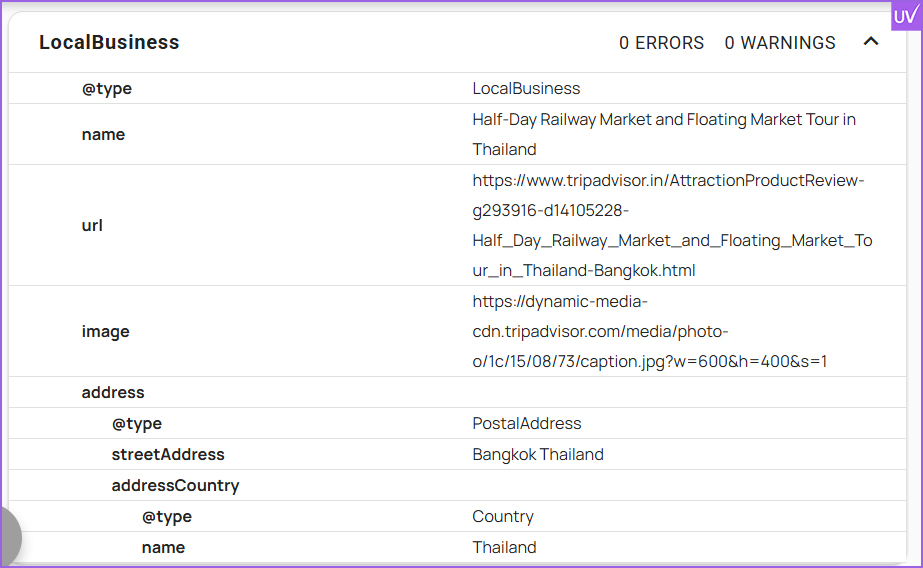
This is the base. It contains your business name, address, phone number, website, business category, and operating hours. Google references this to confirm your identity and display accurate information in search results.
If you’re a plumbing service company, a mechanic, or a neighborhood café, this schema is your bread and butter.
Using plumbing schema markup on your website helps Google better understand your business, which can improve your visibility and rankings in local search results.
2. Opening Hours
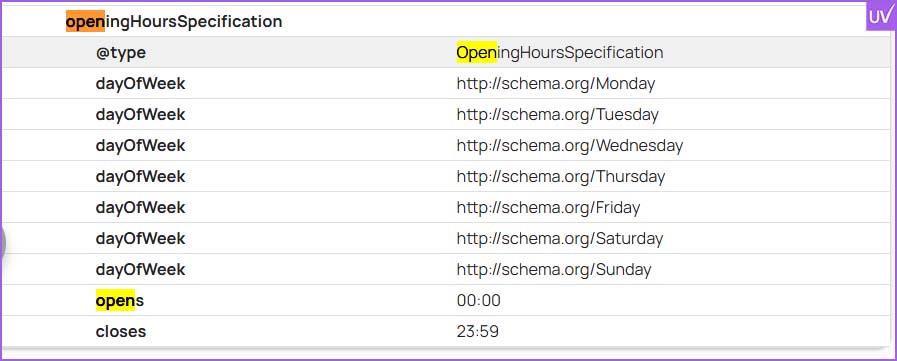
You’d be surprised how many businesses ignore this. Telling Google your working hours makes it more likely that your listing will show up when people search “open now” or “open late.”
Make sure your hours are accurate and updated during holidays or special events.
3. Geo Coordinates
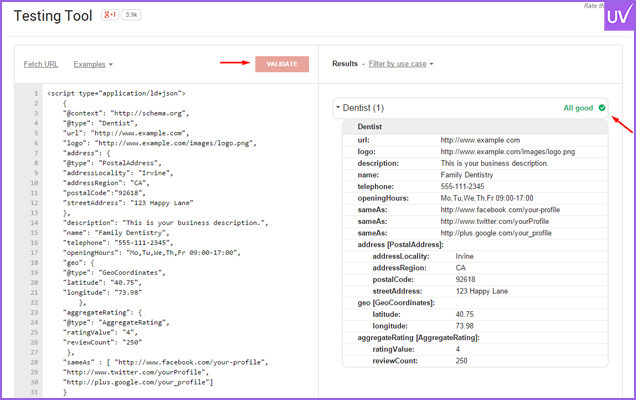
Including latitude and longitude assists Google in identifying precisely where your company is based, particularly useful if your company is in a busy area or is in a city where several locations have the same name.
For example, if you’re a dental clinic optimizing for dental SEO, adding accurate geo-coordinates can help your practice stand out in local searches and appear more reliably on Google Maps.
Research indicates that companies with accurate geo-coordinates are 22% more likely to appear in Google Maps searches (Backlinko, 2023).
4. Customer Reviews and Ratings

Nothing drives trust like authentic customer feedback. Adding ratings and reviews to your structured data makes it so that your star ratings will be shown in your search listing. This isn’t a nice-to-have—it can have a direct impact on traffic.
For example, if you’re a contractor focusing on home improvement SEO, displaying star ratings in search results can boost credibility and attract more clients.
BrightLocal discovered that listings with ratings receive up to 35% more clicks.
5. Social Media Links
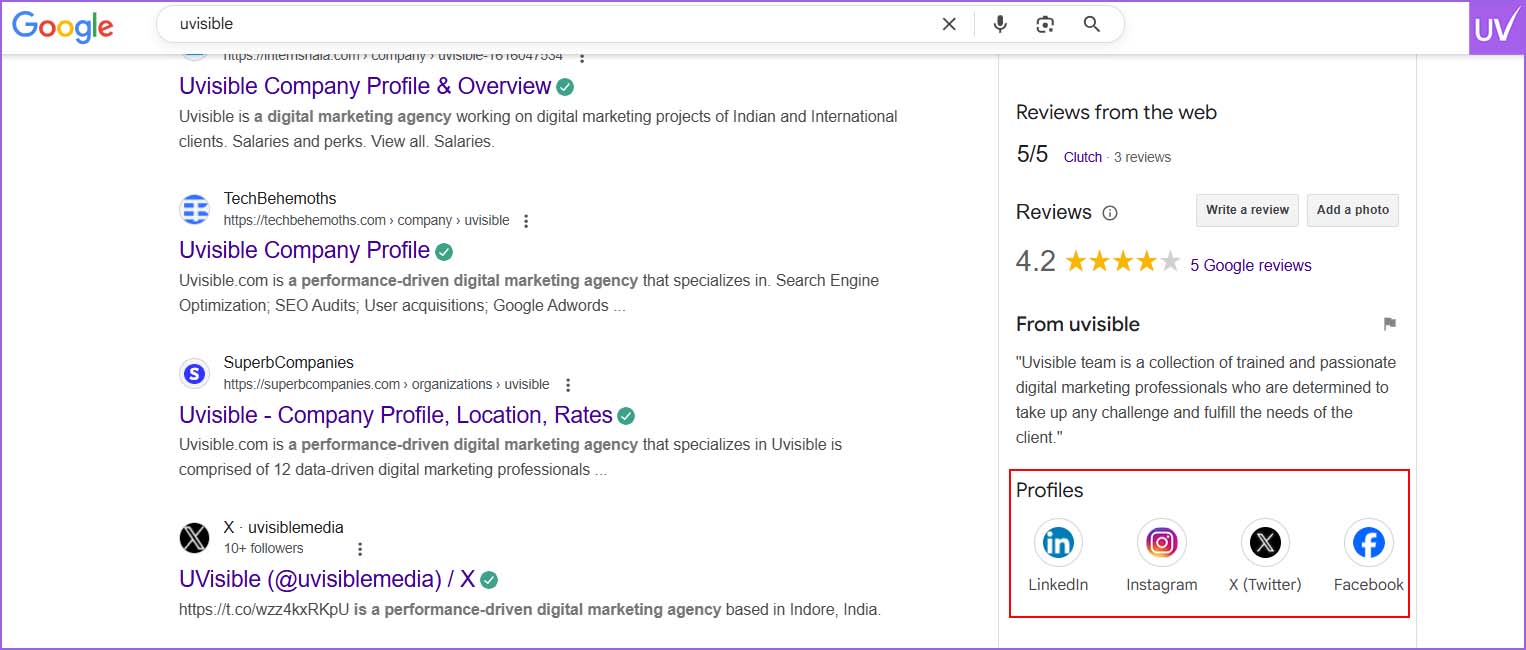
Structured data enables you to connect your business with your social media pages. This establishes trust and verifies your business identity on sites such as Facebook, Yelp, Instagram, and more.
Best Practices for Getting It Right
Even as a non-developer, you can have structured data that pays dividends for you. Here’s what you need most:
Keep Your NAP Consistent

Your Name, Address, and Phone Number (NAP) have to be identical across your site, Google Business Profile, and all the directories you list in. Confusion is what inconsistencies will bring, and search engines dislike confusion.
Always Validate Before Publishing

Google has a free Rich Results Test tool that allows you to test your structured data before pushing changes live. It will identify missing fields or issues that would render your schema useless.
Write in JSON-LD Format

Structured data can be written in various formats, but Google officially supports JSON-LD. It’s neater, less likely to have formatting issues, and gets along with most content management systems.
Keep It Up-to-Date
Don’t “set it and forget it.” If your hours are changed, you relocate, or your business name is updated, your schema needs to be updated as well. For auto repair SEO, stale structured data can harm more than assist—accurate business details are crucial for local search visibility.
Errors That Damage Your Visibility

Structured data only works when you get it right. Some of the following are typical errors that can hold you back:
- Omitting vital details – Omitting simple information, such as hours or address, diminishes the worth of your structured data.
- Incorrect schema type – A local business shouldn’t be using “Organization” as the primary type. Use “LocalBusiness” instead.
- Duplicate entries – When you copy-paste the same schema to all your pages without modifying it according to the content, Google might ignore it.
- Floating or broken markup – Schema that is not placed correctly or linked to page content might not be processed.
Tools to Assist You in Implementing Local Structured Data
You don’t have to be a coder or a developer. There are tools to assist you:
- Google’s Structured Data Markup Helper – A free tool to create structured data graphically.

- Rank Math (for WordPress site owners) – Adds schema automatically from your site content.
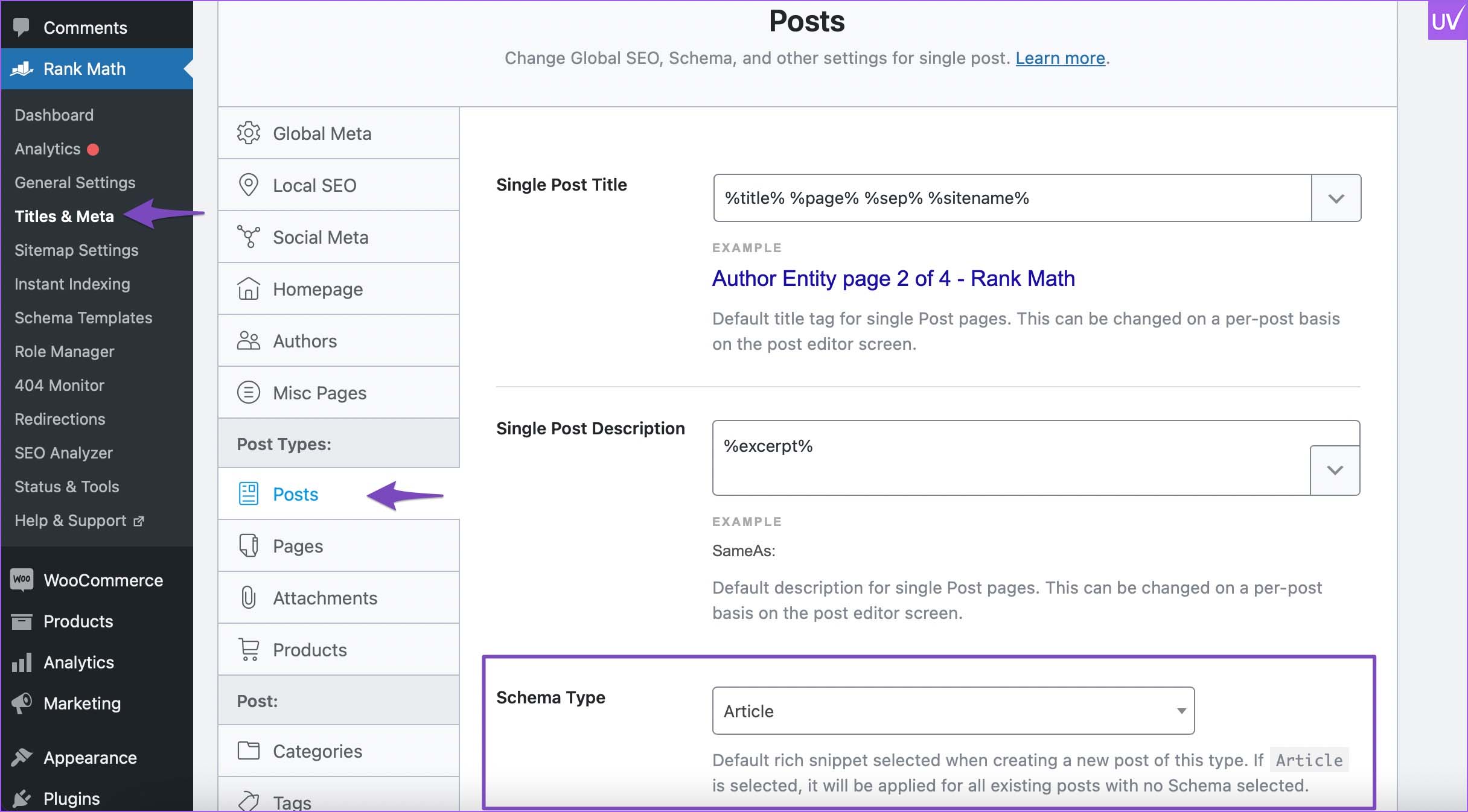
- Schema App – Paid option, but excellent for companies with multiple locations and unique requirements.
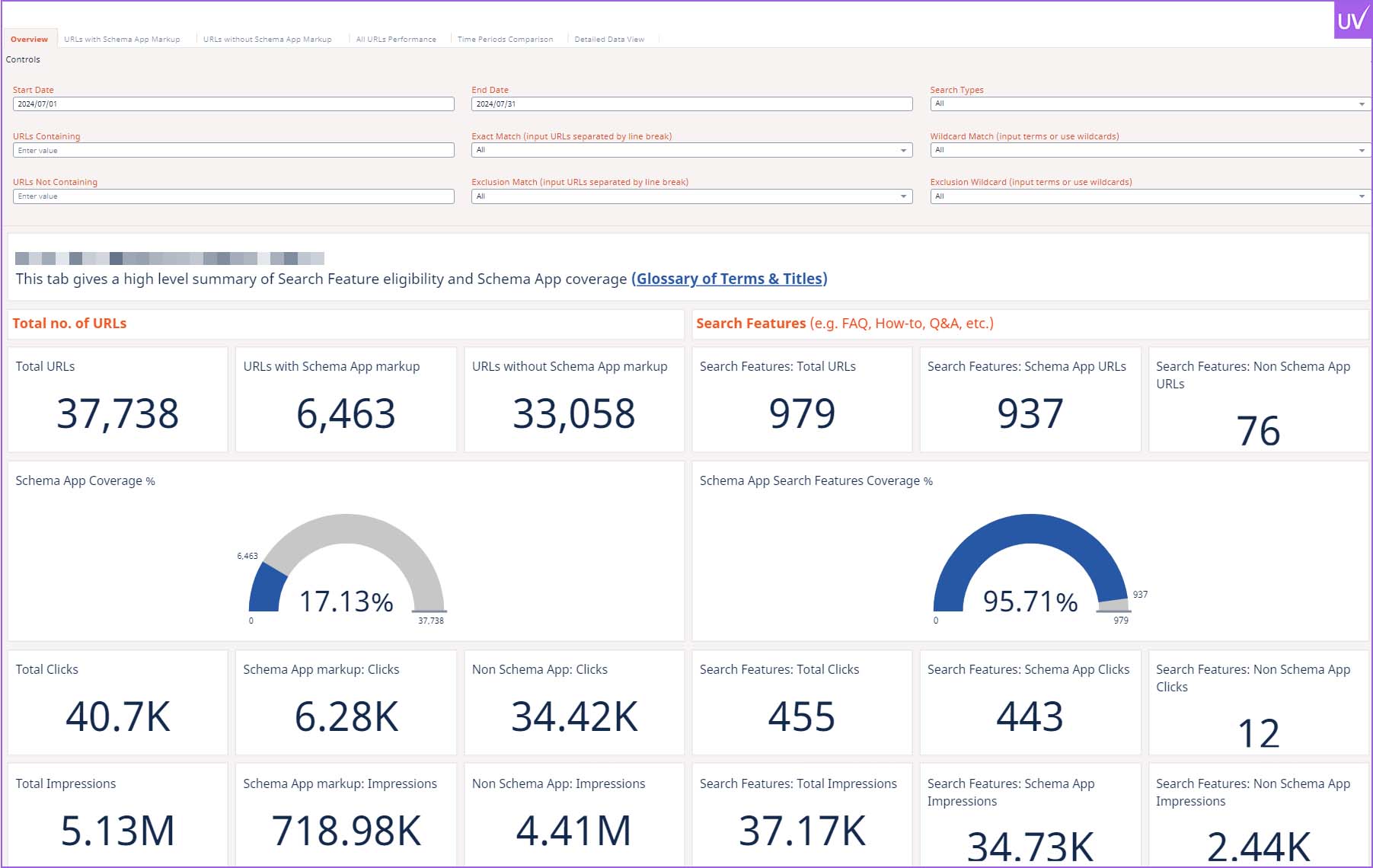
- Yoast SEO Premium – Provides in-built schema blocks for posts and pages.
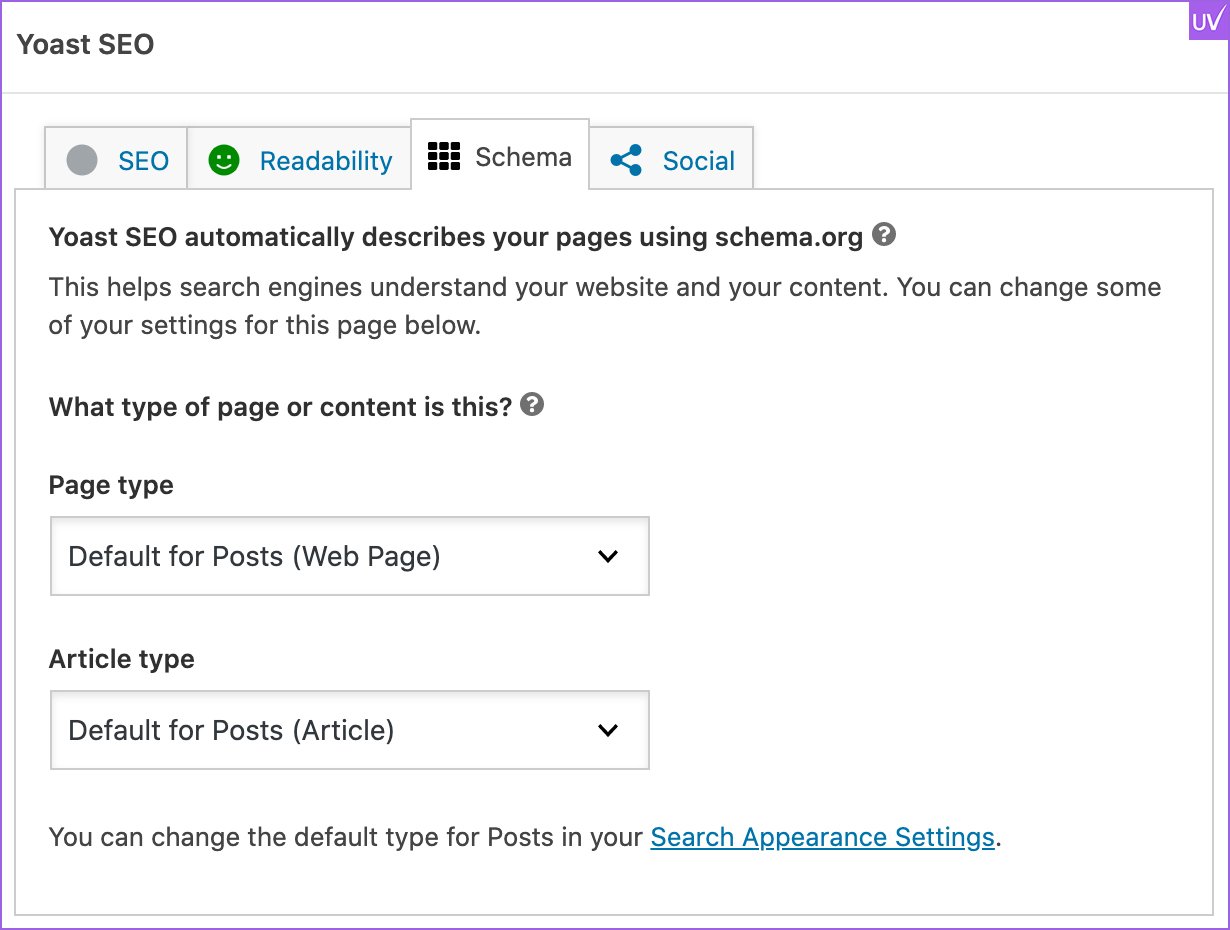
How Structured Data Enables Google’s Future
Google is headed in a direction where it attempts to answer your questions even as you are asking them. Structured data powers this machine-learning system.
Some of the features that make big use of structured data:
- Zero-click search – Where Google provides answers in the results page itself
- Knowledge Panels – Which show up on the desktop results right-hand side
- Maps results – Particularly useful for mobile consumers looking “near me”
- Voice assistant answers – Your data enables what Google Assistant reads out loud
If your structured data is good, your company has a better chance of showing up in all of these.
Local Structured Data That Gets Results
Small businesses tend to ignore structured data because it seems too techie. But when it comes to SEO for small business, it’s one of the highest-impact, lowest-effort ways to enhance your visibility on Google.
Here’s what to keep in mind:
- Structured data informs Google about what your business does, where it is located, and why it’s important.
- Employ the proper schema types: LocalBusiness, hours, reviews, geo-coordinates, and links to your social profiles.
- Keep things consistent, up-to-date, and accurate.
- Verify and keep checking your changes regularly.
Having a site is no longer sufficient in today’s competitive online marketplace. You must enable Google to easily comprehend and market your business. That’s what structured data does—and it pays off.
Do you need assistance with your local search engine optimization or structured data setup?
At Uvisible, we optimize local websites with schema that makes the search engines (and customers) fall in love with your company. Let’s get your company on the map—literally and figuratively.
About us and this blog
We are a digital marketing company with a focus on helping our customers achieve great results across several key areas.
Request a free quote
We offer professional SEO services that help websites increase their organic search score drastically in order to compete for the highest rankings even when it comes to highly competitive keywords.
Subscribe to our newsletter!
More from our blog
See all postsRecent Posts
- How to Market a Roofing Company Online: Digital Marketing, PPC & Social Media for Roofers January 24, 2026
- How to Market Your Cannabis Business Online January 23, 2026
- Why Is Local SEO Crucial for Cannabis & Dispensaries? January 21, 2026









Pingback: Google Business Profile Optimization for Roofers: Tips to Get More Leads